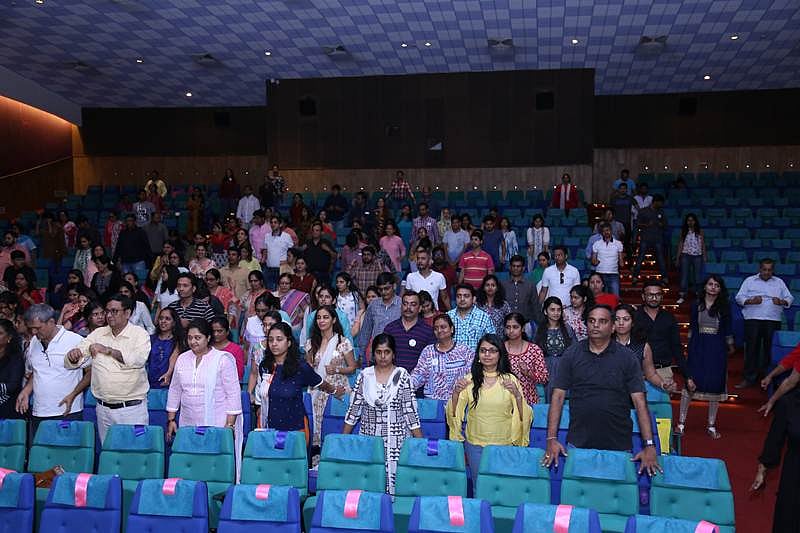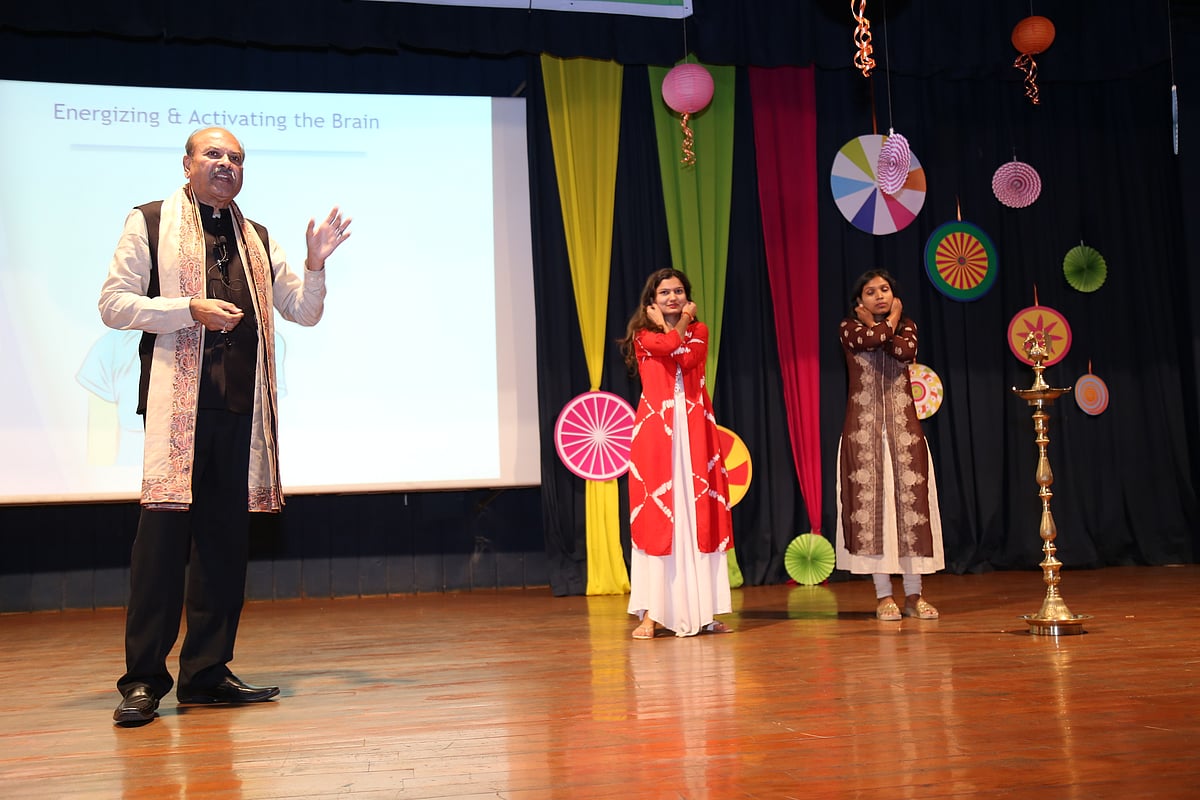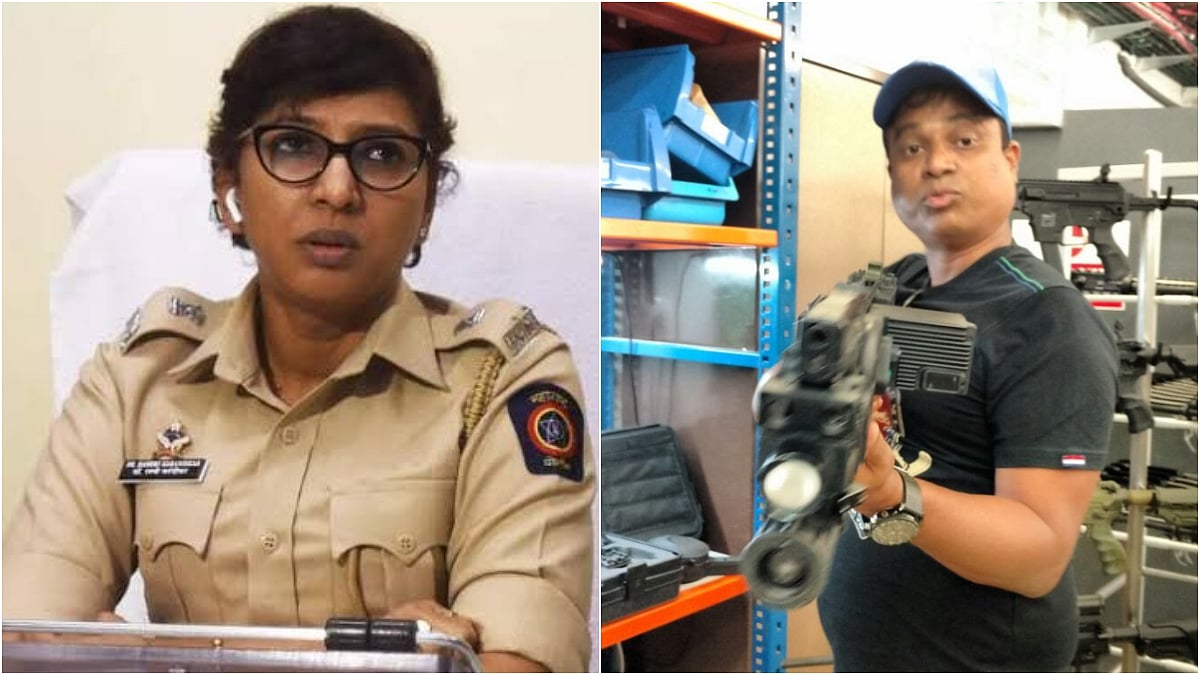Yoga Prana Vidya’s new initiative, Compassionate Parenting & Nurturing aims to help parents deal with their children’s problems in the most effective ways possible, without losing their cool. Varsha Torgalkar looks at how this will be beneficial in creating a healthy home environment
With changing times, an increasing number of parents are finding it difficult to handle their children and, at time, their incomprehensible behaviour. Why do children fight with other children, why do teenagers fall prey to habits like smoking, how to make them be patient and respectable with the elderly – are some questions parents struggle to find answers for. Several studies and experts claim it is lack of communication that gives rise to problems between them.
To help parents create a healthy communicable environment at home where they can address children’s problems in the most effective ways, Yoga Prana Vidya has introduced a new module called ‘Compassionate Parenting and Nurturing’. Yoga Prana Vidya is an organisation and also a course based on the breathing exercises developed by founder and course-trainer N J Reddy.
What is it about
The new initiative, which was recently launched, aims to equip parents with new parenting skills. Emphasising the need to create a healthy environment for children by parents, teachers, and grandparents, Reddy said, “Parenting is one of the most important and, yet, challenging task. Though many times parents don’t want to hurt their children, they end up doing so by comparing them with other children and pointing out their mistakes in front of others. We want parents, teachers and grandparents to think about the good qualities of their children before criticising them.”
The formula of compassionate parenting is all about responding to their children’s negative or violent behaviour with positive emotions and showering them with affection, winning their trust so that they share their problems with parents without any fear. “Take a deep breathe and calm yourself as it will also help you come up with better ideas to handle the situation,” Reddy added.

Parents practicing a technique at the session |
The techniques involved
Speaking about the various techniques which are a part of the cours e, Bangalore-based Janhavi N, a trainer of the course and who has played a major part in designing it, said, “Let us begin with understanding the erase technique. Erase all the tendencies of blaming, shaming, judging, labelling, irritation and so on by repeating ‘Erase, erase and erase’. When your child gives responses like he does not want to study, don’t give the habitual reaction of irritation or judging or shaming.
Instead shift focus to think on how to handle the situation in way that will be inspiring. Think about the ongoing conflict with your child and list out the child’s and your feelings. Try to understand the aspects of your life that are making you feel in a certain way. For example, things like workload and your equation with family or neighbours may be affecting your equation with your own child. First try to connect with yourself, understand your priorities, weed out negative feelings and then perceive the learning processes.”
Moving on the explain the next in the technique stage, Janhavi N added, “Next is Relaxation-Sadhna which is about forgiveness that parents should do with their children, as it will bring understanding and faith between them. Parents will understand how to use these techniques in their own circumstances when they learn and practice.”
Vishakha Karnani, a trainer of the course, says, “I have been training kids at Rescue Homes at Madhya Pradesh where juveniles caught in committing crime are kept. I do understand that they need to be kept in a positive environment so that when they are freed from these homes they would lead a better and safe life. And that is why even officials at juvenile homes should be told how important it is to create a healthy environment for them. Our main target will also be slums and areas where crimes are reported. We are also going to approach officials and caretakers at such government homes for kids or orphanages to impart the knowledge of compassionate training. That will be done as charity, of course. We want schools, coaching classes and parents to come forward and get a know-how of this concept.”
Sonali Mohite, one of the parents who attended the session, said, “The session answered all my dilemmas when I try to deal with my kid who is in second standard. I used to be harsh to make my child disciplined, but this session helped me understand that a healthy environment is needed for a child to grow.”
Reaching out
To reach out to parents who cannot attend these sessions or those who reside in remote areas, the Yoga Prana Vidya has developed Sadhana App, which has all the teaching material from the sessions for their perusal. The app is available in Hindi, English, Marathi, Kannada, Bengali and more languages will be included soon and is available for download for Android and Apple devices.
Shweta Naik, one of the members of Yoga Prana Vidya, said, “We want more people to download the app and benefit from the course which is available free of cost.”





